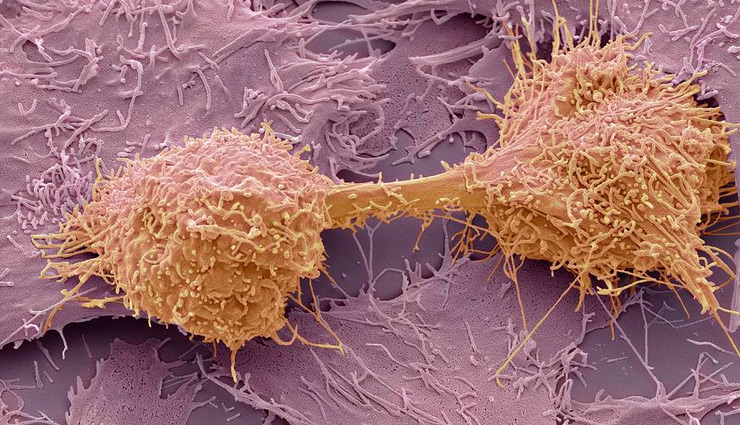- Home›
- Healthy Living›
- 10 Health Benefits Of Black Coffee
10 Health Benefits Of Black Coffee
By: Priyanka Maheshwari Tue, 01 Aug 2023 10:22:58

Coffee has long been a favorite morning beverage for people around the world, cherished for its rich taste and ability to provide a much-needed energy boost. But beyond its delightful flavor, black coffee offers an array of impressive health benefits that may surprise you. From increased alertness to potential disease prevention, the advantages of drinking black coffee go beyond just a morning pick-me-up. In this article, we will explore ten remarkable health benefits of black coffee and shed light on why this simple beverage has become more than just a delightful indulgence. So, whether you are a seasoned coffee lover or someone considering adding black coffee to your daily routine, read on to discover the potential ways this beloved brew can contribute to your well-being.

# Improved Mental Alertness
Black coffee offers several health benefits, including improved mental alertness. It contains caffeine, a natural stimulant that enhances focus and concentration by blocking inhibitory neurotransmitters in the brain. This leads to increased levels of dopamine and norepinephrine, promoting better cognitive function. Consuming black coffee in moderation can help boost reaction times, memory, and attention span, making it a popular choice to start the day with increased clarity and energy.

# Enhanced Physical Performance
Black coffee enhances physical performance by stimulating the nervous system and increasing adrenaline release. This prepares the body for exercise, leading to improved endurance, strength, and reduced perceived exertion during workouts. It also aids in fat burning, making it a valuable addition to a pre-workout routine.

# Rich in Antioxidants
Black coffee is rich in antioxidants, which are beneficial compounds that help neutralize harmful free radicals in the body. Antioxidants play a crucial role in reducing oxidative stress and preventing cellular damage, which can contribute to various chronic diseases and aging. Regular consumption of black coffee can contribute to a higher intake of these health-promoting antioxidants, helping to protect the body from oxidative damage and promoting overall well-being.

# Weight Management
Black coffee can be beneficial for weight management due to its low-calorie content and potential to boost metabolism. As black coffee is typically consumed without added sugar or cream, it is a low-calorie beverage. Additionally, the caffeine present in coffee can stimulate the central nervous system and increase the release of adrenaline, leading to an increase in metabolic rate and fat oxidation. This can potentially aid in weight loss or weight maintenance efforts. However, it's essential to consume black coffee in moderation and as part of a balanced diet and active lifestyle for effective weight management.

# Lowered Risk of Type 2 Diabetes
Black coffee consumption has been linked to a reduced risk of type 2 diabetes. Regular intake of black coffee may improve insulin sensitivity and lower the risk of insulin resistance. The antioxidants in black coffee, such as chlorogenic acid, contribute to this benefit by reducing inflammation and oxidative stress. However, individual responses may vary, and black coffee should not replace a balanced diet and active lifestyle as preventive measures for diabetes. Consultation with a healthcare professional is essential for diabetes management and prevention.

# Liver Protection
Black coffee consumption has been associated with potential liver-protective effects. The antioxidants and bioactive compounds present in black coffee, such as chlorogenic acid, may help reduce inflammation and oxidative stress in the liver, protecting it from damage. Studies suggest that regular black coffee intake may lower the risk of liver diseases, including fatty liver and liver fibrosis.

# Reduced Risk of Certain Cancers
Black coffee consumption has been linked to a reduced risk of certain types of cancers. The antioxidants and bioactive compounds in black coffee may help neutralize harmful free radicals and reduce oxidative stress, which can contribute to cancer development. Studies have suggested that regular consumption of black coffee may be associated with a lower risk of certain cancers, such as liver cancer, colorectal cancer, and breast cancer. However, it is essential to remember that lifestyle factors and overall dietary patterns also play a significant role in cancer risk. Black coffee can be a part of a healthy and balanced lifestyle, but it should not be considered a sole preventive measure against cancer. It is always best to consult with a healthcare professional for personalized advice on cancer prevention and overall health.

# Improved Heart Health
Black coffee consumption has been associated with potential benefits for heart health due to its antioxidant content and chlorogenic acids. Moderate coffee intake may be linked to a reduced risk of heart diseases like heart failure, stroke, and coronary artery disease. However, excessive caffeine intake should be avoided, and individual health conditions should be considered.

# Lowered Risk of Neurological Conditions
Regular black coffee consumption has been associated with potential benefits for brain health, including a reduced risk of certain neurological conditions. The caffeine and antioxidants in black coffee may offer neuroprotective effects, helping to prevent neurodegenerative diseases like Alzheimer's and Parkinson's. Studies suggest that coffee consumption may improve cognitive function and lower the risk of cognitive decline in the elderly. However, individual responses to coffee can vary, and excessive caffeine intake should be avoided. Overall brain health requires a balanced diet, regular exercise, and a healthy lifestyle.

# Mood Booster
Black coffee can act as a mood booster due to the caffeine content, which increases the release of neurotransmitters like dopamine and serotonin, associated with feelings of happiness. Regular consumption of black coffee has been linked to a reduced risk of depression and depressive symptoms.





